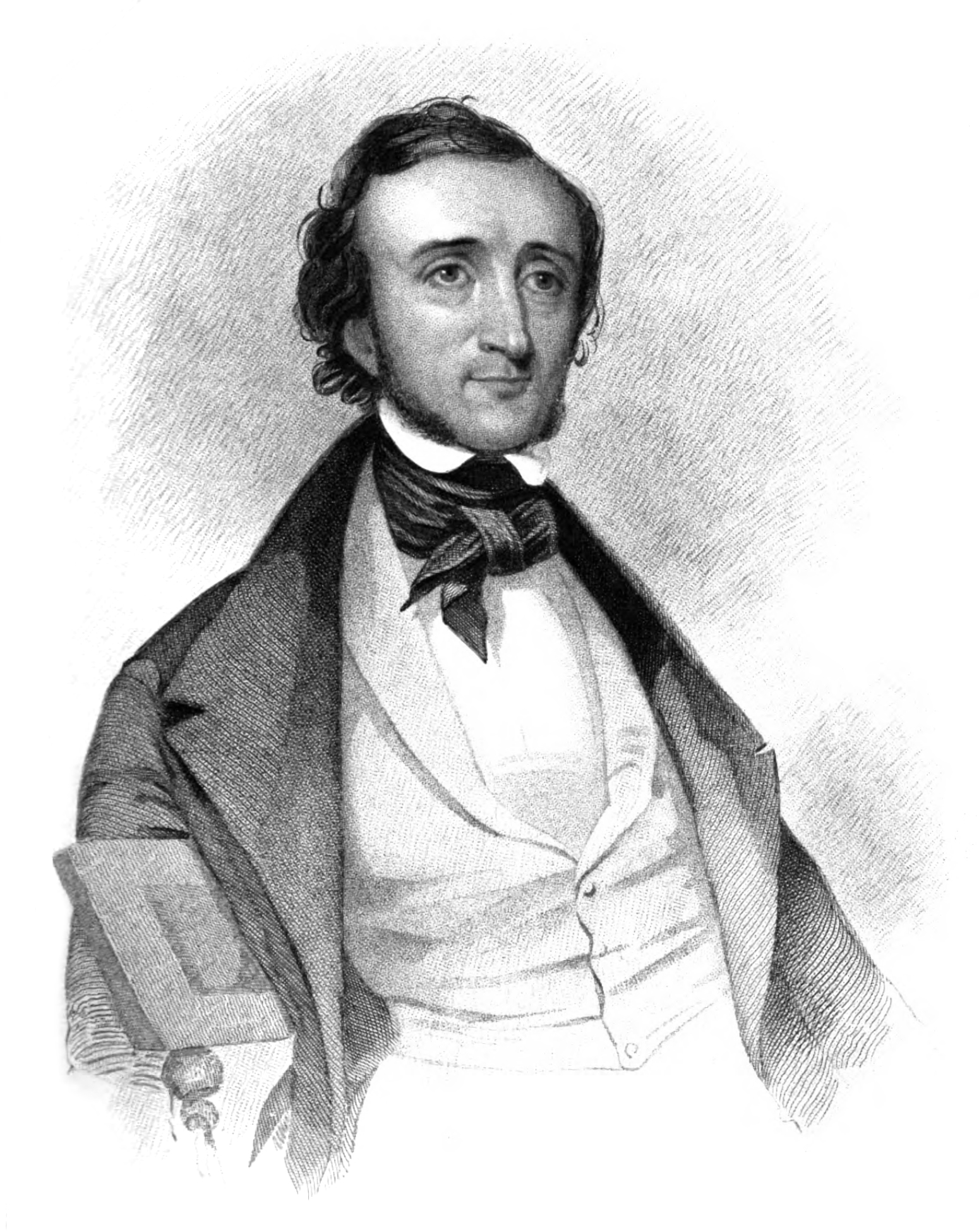Edgar Allan Poe, a poet, short story writer, and critic known for his haunting and gothic fiction and poetry, was a renowned figure in American literature. However, his life and reputation were marred by a bitter feud with Rufus Griswold, an editor and anthologist, whose actions would shape the public perception of Poe long after his death.
One of the earliest sources of tensions between the men was when Griswold released his poetry anthology, The Poets and Poetry of America, in 1842. The anthology included three poems by Poe.
Poe raised the ire of Griswold when he published a critical response that questioned some of the other poets that were included. Among the poems these were, for example, 45 by Fenno Hoffman, a close friend of Griswold’s.
The men’s lives also intertwined when they each took a turn in editing Graham’s Magazine, a periodical that was published from 1840 to 1858. Poe took the role from 1941 to 1942. Griswold took over after Poe’s departure in April 1942 and was reportedly paid a salary of $1000 a year, $200 more than Poe.
After departing Graham, Poe began presenting a series of lectures called “The Poets and Poetry of America.” In these, Poe openly attacked Griswold.
Another source of tension between the men was their shared interest in Frances Sargent Osgood, a popular female poet. Although both men were married, they nonetheless competed for her attention.
It was after Poe’s death that Griswold’s dislike of Poe took on extra venom. Griswold wrote an obituary about Poe after his death under the pseudonym Ludwig. In this piece, Griswold stated coldly that “few will be grieved” by Poe’s passing.
He also made several other harsh claims. These included that Poe often wandered the streets, either in “madness or melancholy”, mumbling and cursing to himself, was easily irritated, and was envious of others. Poe was also said to have “regarded society as composed of villains” and Griswold claimed that Poe’s drive to succeed was because he sought “the right to despise a world which galled his self-conceit”.
After Griswold was identified as being behind the writing, he showed no remorse for his words, telling Sarah Helen Whitman, Poe’s former fiancé, that “I was not his friend, nor was he mine.”
Griswold didn’t stop there. He said that “among the last requests of Mr. Poe” was that he was to be his literary executor “for the benefit of his family,” a spurious claim given his admittance that the two men did not like each other.
Griswold produced a document signed by Poe’s mother-in-law Maria Clemm, in which Clemm transfers power of attorney to Griswold. Doubts were raised about the document, however, as there were no signed witnesses. Clemm further had no legal authority to make this decision as Poe’s younger sister Rosalie was his closest next of kin.
Griswold also took it upon himself to edit a posthumous collection of Poe’s work, titled “The Works of the Late Edgar Allan Poe.” In a biographical introduction, Griswold doubled down on his unfavorable characterizations of Poe, portraying him as a drunk, a madman, and as being addicted to drugs. Griswold’s scathing portrayal shocked many, including those who knew Poe personally.
Soon Poe’s friends mounted a defense to save his reputation from what they said was a malicious attempt to discredit the writer and tarnish his memory.
In March, Graham published a notice in his magazine in which he said that “Mr. Griswold has allowed old prejudices and old enmities to steal … into the coloring of his picture.”
Another friend, Thomas Holley Chivers, responded to Griswold in a book called New Life of Edgar Allan Poe. He said that Griswold “is not only incompetent to Edit any of [Poe’s] works, but totally unconscious of the duties which he and every man who sets himself up as a Literary Executor, owe the dead.”
Writer John Neal further published an article defending Poe. In this he called Griswold a “Rhadamanthus, who is not to be bilked of his fee, a thimble-full of newspaper notoriety”.
Whitman also came to the defense of her former beau in a book titled Edgar Poe and His Critics, which helped to restore his image. Griswold’s book nevertheless became a popularly accepted biographical source for a time.
Ultimately, Griswold’s legacy is for his hatred of Poe, though some defenders say that his intentions were not to cause Poe harm. Griswold was motivated, they say, to elevate his own literary standing.
Griswold’s portrayal of Poe had a lasting impact on how the public perceived the writer. For decades, Poe was seen through the lens of Griswold’s biased and sensationalized account, overshadowing the true depth and artistry of his work.
But Griswold’s attacks also drew attention to Poe’s work, as curious readers sought to understand the psyche of a man portrayed so negatively. Over time, as scholars and admirers delved deeper into Poe’s writings, his talent emerged from beneath the shadow cast by Griswold’s portrayal.
Today Poe is recognized as one of the most influential and innovative figures in American literature.
